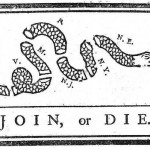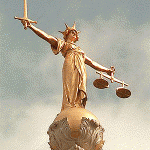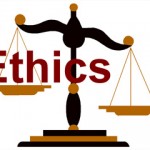Written by: Derek Campbell
So here’s a thought, how compatible are nationalism and libertarianism? Labour are admitting that they allowed too much immigration when in power and UKIP and the Conservatives wish to place restrictions on the numbers coming into Britain. Most of the main parties are claiming to be looking after the “national interest”. But hang on, does a libertarian perspective fit in with this nationalistic fervour? Or does libertarianism have a distinctive alternative message? Or maybe any tension between nationalism and liberty is more imagined than real?
The first and most obvious point is that concern about the nation is a collective rather than an individual perspective. The national interest is a collective interest, so to put the interests of the nation first must mean putting the interests of the collective first. Furthermore, the nation in contemporary, political usage presupposes the state. Libertarianism, on the other hand, even at its most accommodating extreme would be cautious about the state; a necessary evil might be the most charitable assessment that a libertarian could provide for the continuance of the state. This unease about the state is a point on a continuum that extends towards those advocating a minimal state (minarchists) and beyond to those who envision a society with no state at all (anarchists). Although anarchy is often associated with “the left”, with decentralised control, collective self management and rejects the capitalist economic approach, there is also a strand of anarchy that is sympathetic to free trade, free markets and capitalism. It contends that the state and big business have colluded to fashion corporatism which restricts trade and distorts markets.
It is perhaps obvious that there would be a difficulty reconciling anarchy and the nation state from both the left and the right. But can libertarianism (anarchy lite, anyone?) sit comfortably with the concept of nationhood?
Well there are political views that see trade liberalisation, the return of powers from the EU to the UK and the consequential loss of bureaucracy as distinctly libertarian. The supra national institution of the EU is seen to usurp the sovereignty of parliament. However, it seems to be obvious (using an equine analogy) that taking a horse from a stable and turning it out into a paddock is distinctly different from setting it free. In other words for a libertarian, and almost certainly for an anarchist, there is no substantive difference between government from Westminster and government from Brussels.
This leads to a second observation, that the concept of nationhood provides privileges for one set of people, Britons in this case, over another set of people, non Britons. Put another way nationalism attempts to erect a barrier between “us” and “others”. Now this has dangers in itself as it has a clear path to xenophobia, but this is not the main point. The bigger issue, surely for libertarians is that the individual is of secondary importance
There is a tension between libertarianism and nationalism. It is most straightforward to dismiss the libertarian claims of small state Conservatives and UKIP. Indeed for these there is a straightforward trade-off between individual liberty and the advantages of collectivism. They may not want to draw too much attention to this feature, and even less to debate the philosophical foundations or logical conclusions of their point of view, but it does at least have the benefit of pragmatism over ideology. The anarchist position is somewhat more straightforward in theory, although the practicalities are less so, in that eschewing the state obviates the need to even consider the nation as a significant political factor. But for avowed libertarians there appears to remain a difficult circle to square: how to reconcile individual liberty with nationality.









